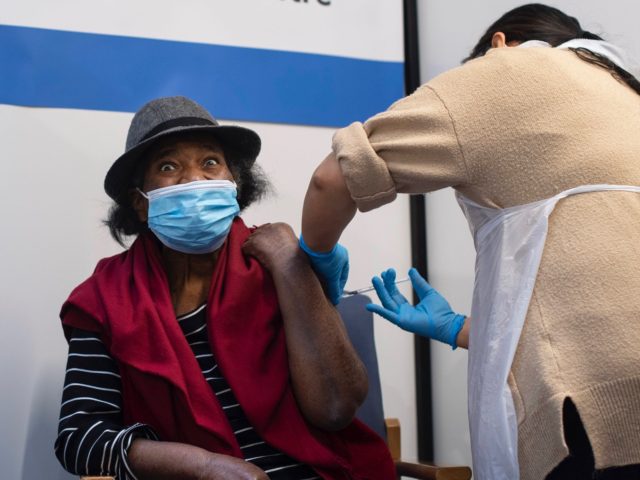The British government’s Scientific Advisory Group for Emergencies (SAGE) has pointed to “structural and institutional racism and discrimination” for the reticence amongst some ethnic minorities to take the coronavirus vaccine.
Figures collected in November by the UK Household Longitudinal Study found that while the population at large is overwhelmingly in favour of taking the coronavirus vaccine, with 82 per cent expressing willingness, a surprising 72 per cent of the black population in the UK said that they were unlikely or very unlikely to take the jab.
The study, also found that Bangladeshi, Pakistani, and Eastern European people, alongside young people and women, are also less likely to take the coronavirus vaccine.
A report from SAGE, reported on by the Daily Mail, blamed supposed “institutional racism” for the unwillingness of the BAME (Black, Asian, and Minority Ethnic) communities in the UK to be vaccinated.
“Trust is particularly important for black communities that have low trust in healthcare organisations and research findings due to historical issues of unethical healthcare research,” the report said.
“Trust is also undermined by structural and institutional racism and discrimination. Minority ethnic groups have historically been underrepresented within health research, including vaccines trials, which can influence trust in a particular vaccine being perceived as appropriate and safe, and concerns that immunisation research is not ethnically heterogeneous,” SAGE surmised.
The chairman of the Royal College of GPs, Professor Martin Marshall, said: ‘We are concerned that recent reports show that people within BAME communities are not only more likely to be adversely affected by the virus but also less likely to accept the Covid vaccine when offered it.
“As such, where appropriate, we’re calling for public health communications to be tailored to patients in BAME communities, to reassure them about the efficacy and safety of the vaccine and ultimately encourage them to come forward for their vaccination when they are invited for it.”
Report: National Health Service Will Use 'Sensible' Celebrities to Front Vaccines Campaign https://t.co/U1ED8lPW3i
— Breitbart London (@BreitbartLondon) November 30, 2020
The director of the NHS Race and Health Observatory, Dr Habib Naqvi, claimed that language and cultural barriers may be a factor in the disparity and that fake news spread about the vaccine within certain groups might play a role as well.
“We need to be clear to our communities that there is no meat or meat products in the vaccine. There is no pork, there is no alcohol and it has been endorsed by religious leaders and religious councils,” Dr Naqvi said.
“Organisations and officials are working with social Asian role models, community leaders, influencers, religious leaders, to help to debunk some of the myths that are out there,” he added.
In November, the left-wing mayor of London, Sadiq Khan, called for ethnic minorities to receive preferential access to the vaccine, claiming that BAME groups “disproportionately suffered during the main deaths we saw in March, April, May and June”.
“One of the things we have got to do is give Londoners the confidence it’s worth getting this vaccine, and also make sure that the most vulnerable – the most likely to catch the virus and, God forbid, die – get the vaccine first,” Khan said.
‘Open Knowledge in the Community’ that Huddersfield Mosque Is Breaking COVID Rules, Claims Worshipper https://t.co/gu6IMQ3gso
— Breitbart London (@BreitbartLondon) October 12, 2020
Follow Kurt Zindulka on Twitter here @KurtZindulka

COMMENTS
Please let us know if you're having issues with commenting.